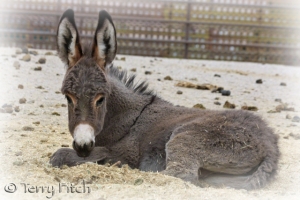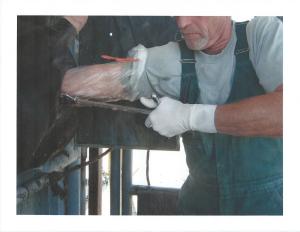By HALEY WALTERS Today’s News-Herald
“A little bit of Wild Burro propaganda, maybe?!” ~ R.T.
The Bureau of Land Managementmay enter into an agreement withArizona Game and Fish Commission to team up on Arizona’s burro problem, following talks yesterday in Washington.
Senator John McCain, representatives from Game and Fish plus several county supervisors sat down to discuss the area’s relentless burro overpopulation and ways to combat it. Arizona Game and Fish submitted a proposal that is under consideration by the BLM.
“I look forward to BLM’s review of the proposal,” McCain said. “I also believe it’s time that Congress holds a hearing to examine the rapid growth of burro populations in Arizona. I look forward to continuing this conversation until a sustainable, long-term solution is agreed upon.”
The proposed solution would place more of the burro burden onto the Commission, alleviating the billion-dollar financial strain the management costs for burro management places on the BLM each year.
“The resolution includes burro capture, transports and an aggressive marketing campaign to adopt them out,” Mohave County Supervisor Steve Moss said. “It’s a very compassionate resolution if it works.”
McCain is expected to pursue an intergovernmental agreement that would validate this partnership and may pursue a possible special senate hearing to examine how federal law is impacting the situation. The Wild and Free-Roaming Horses and Burros Act of 1971 only permits the BLM to manage burro herds.
““It’s clear to all parties that the current incarnation of the federal government’s Wild Horse and Burro program is no longer effective and must be re-evaluated,” Arizona Game and Fish Commission Chairman Kurt Davis said. “The impact this non-native, feral animal is having on our native wildlife, our communities and taxpayers is only escalating and no longer can be shoved aside by the BLM.”
Moss said BLM officials don’t expect the capture-adopt method to completely solve the problem, but he and other stakeholders said they are in complete support of the measure if it slows the growth of burro populations.
“We’ll find out over the next several months and years if it has had an impact,” Moss said.







